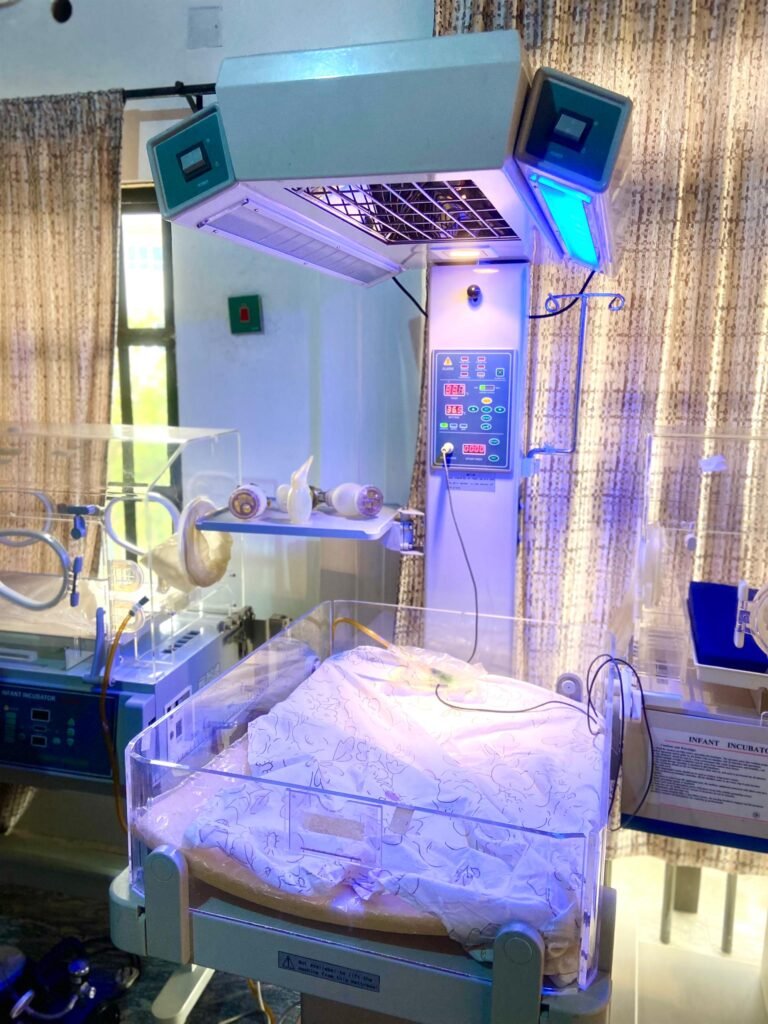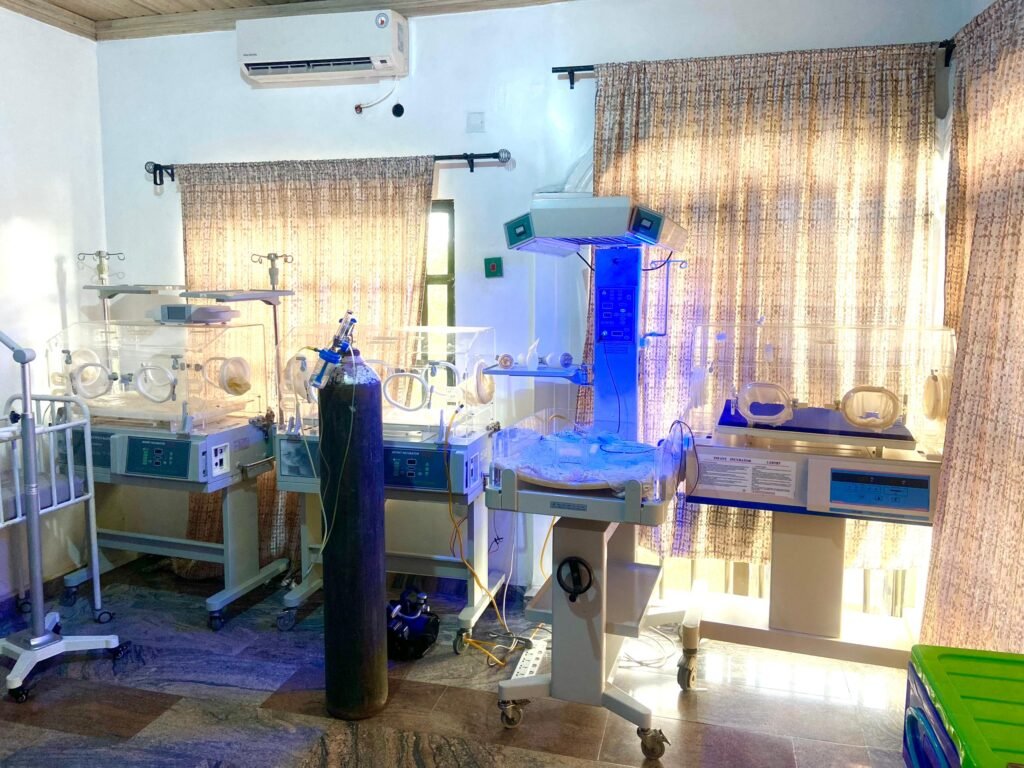
Every birth is a miracle, and yes every newborn deserves the best start in life.
In some cases that start doesn’t come as smoothly as expected, according to American Academy Of Pediatrics (AAP), approximately 10% of newly born infants need help to begin breathing, and 1% need intensive resuscitation measures to restore cardiorespiratory function. This is where Neonatal Resuscitation becomes vital.
Neonatal Resuscitation is a critical procedure performed to support a newborn’s transition from the womb to the outside world, particularly when the baby does not spontaneously begin breathing or has difficulty establishing circulation.
It involves a series of steps focused on establishing and maintaining breathing, circulation, and appropriate temperature, starting from drying, and stimulating the baby to more advanced techniques like positive pressure ventilation, chest compressions , and administration of medication if necessary.
These actions are tailored to the baby’s condition within the first few minutes after birth.
WHY IS NEONATAL RESUSCITATION IMPORTANT?
- Immediate response to life threatening conditions: Newborns fail to breathe due to birth complications, infections or prematurity. Without prompt resuscitation, babies risk severe oxygen deprivation, brain damage, or death.
- Reducing neonatal mortality rates: Globally, asphyxia is a leading cause of newborn deaths. Timely resuscitation can reduce this preventable death.
- Improving long-term health outcomes: A few minutes of oxygen deprivation can lead to long term health issues such as cerebral palsy, or cognitive impairment. Proper resuscitation helps minimize this risk, giving babies a healthier future.
- Supporting safe motherhood: A healthy newborn contributes to a more positive maternal experience, reducing stress and anxiety for the mother. Mothers are more likely to trust and return to health care facilities, when they know their babies will receive lifesaving interventions if needed. This strengthens the entire health care system and promotes safe childbirth practice.
THE RESUSCITATION PROCESS
- Initial Assessment and Stimulation:
Rapid Assessment: Quickly assess the newborn’s breathing, heart rate, and color within the first minute of life.
Warmth: Provide warmth to maintain the infant’s body temperature.
Positioning: Place the infant on their back with the head slightly extended to open the airway.
Stimulation: Gently rub the back or flick the feet to stimulate breathing.
- Airway Management:
Clearing the Airway: Suction the mouth and nose if necessary to remove any secretions, blood, or meconium.
Opening the Airway: Ensure the airway is open and unobstructed, often achieved by gently tilting the head back.
- Ventilation:
Positive Pressure Ventilation (PPV): If the newborn is not breathing adequately, use a bag-mask ventilation device to provide breaths at a rate of 30-60 breaths per minute.
Monitoring: Assess chest wall rise with each breath and check heart rate.
- Circulation:
Chest Compressions: If the heart rate remains below 60 beats per minute despite adequate ventilation, initiate chest compression.

- Ongoing Assessment and Intervention:
Continuous Monitoring: Continuously monitor the newborn’s heart rate, breathing, and oxygen saturation.
Medications: Medications are rarely needed in neonatal resuscitation, but epinephrine may be used in some cases of severe bradycardia or cardiac arrest.
Advanced Interventions: In more complicated cases, advanced interventions like endotracheal intubation and advanced airway support may be required.
- Key Considerations:
Equipment Preparation: Ensure all necessary equipment (e.g., suction catheters, bag-mask ventilation, chest compression pads) is readily available before delivery.
Teamwork and Communication: Clear communication and teamwork are crucial for efficient and effective resuscitation.
Early Intervention: Resuscitation efforts should be initiated as soon as possible after birth, as every second counts.
Training: Helping Babies Breathe (HBB) training is recommended.
Neonatal Resuscitation is not just a medical procedure, it is a vital part of ensuring every baby has a fighting chance at life.
Imagine this:
A baby is born. Silent. Not breathing. Seconds feel like hours.
But in the skilled hands of a trained healthcare team, that silence is broken — with the first breath, the first cry, the first sign of life.
That is the power of neonatal resuscitation.
At Blue Gloves Hospital, we understand the value of every heartbeat and every breath a newborn takes. Our team of skilled healthcare professionals is trained in the latest Neonatal Resuscitation Protocols, ensuring that every baby receives immediate and expert care when it matters most.
We are committed to providing safe childbirth services, 24/7 neonatal emergency support, and evidence-based maternal and child care. From antenatal classes to delivery and postnatal support, we stand by mothers and babies every step of the way.
When you choose Blue Gloves Hospital, you choose safety, experience, and compassionate care for both mother and child.
Every second counts, and we are here to make those seconds count for life.
Visit us today at 67 Edet Akpan Avenue (4 Lanes) Uyo, Akwa Ibom State.
or contact 08109721819
Email: info@bluegloveshospital.com
Your baby deserves the best start, and we’re here to make it happen.